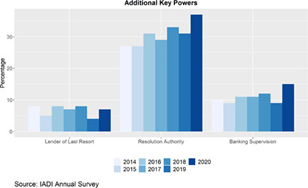On January 18, 2024, the 15th National Assembly issued the Law on Credit Institutions No. 32/2024/QH15 (Law on Credit Institutions 2024), which stipulates:
“Article 106. Regulatory sandbox in banking sector
1. Regulatory sandbox in banking sector means an environment that allows experiments on technologies, products, services and business models in banking sector with limited scale, space and duration of implementation; institutions participating in the Regulatory sandbox shall satisfy conditions and criteria for approval of participants and be subject to supervision by competent state agencies.
2. The Government shall elaborate this Article.”
Regulatory sandbox is one of the policy tools and approaches adopted by many countries in the world
According to SBV, recently, banks around the world and Vietnamese banking industry have witnessed a trend of robust application of new technologies associated with the advancements created by the 4.0 Industrial Revolution such as the application of Cloud computing, Big data Analytics, open API, Blockchain and Artificial Intelligence (AI) in banks’ business models, product and service offerings and how banks and credit institutions (CIs) approach and interact with customers. This application facilitates enhancements in operational efficiency, improves customer experience and enables quick, safe and convenient customer transaction with suitable services and reasonable costs.
In Vietnam, the trend of Fintech development is also clearly demonstrated through the fact that technological startups or non-banks possessing advantages in technology participate in the banking and financial sector activities (also known as Fintech companies) by developing solutions to support banking activities without directly providing services to end-users, or by directly and independently providing new services. In greater detail, over the past few years, we have witnessed the formation and development of a large number of Fintech companies participating in many different fields and activities such as transaction, peer-to-peer (P2P) lending, credit scoring, personal financial management, etc. The Fintech field also attracts the entry of many large domestic technology companies and enterprises, often those with strong technological capabilities. This involment takes the form of direct investments in establishing Fintech companies or indirect investments through the foundation of investment and incubator funds that support Fintech startups.
Moreover, as stated by the SBV, Fintech’s rapid development and expansion have posed challenges for financial and monetary regulators in many countries in regulation and supervision, such as difficulties in money laundering and combating the financing of terrorism (AML/CFT), maintaining network security, protecting user data and protecting consumers and investors’ rights, etc. Like many government authorities in the world, the SBV and some relevant agencies are also encountering new challenges with the emergence of Fintech companies that are fully or partially providing services or solutions in payment, P2P lending, credit scoring, etc. Most of mentioned Fintech companies’ areas of activity currently do not have a comprehensive legal framework or specific legal regulations. Therefore, there may be potential risks and negative consequences that affect a number of aspects such as fair competition, financial stability, consumer rights protection, and network security. In adddition, the development trend intertwining with mentioned “cooperation and competition” poses many challenges in terms of policymaking and regulations for government agencies in harmonizing the promotion of innovation and fair competition between traditional financial institutions and Fintech companies with ensuring financial stability, protecting consumers, and maintaining cybersecurity.
For example, regarding the emerging P2P Lending activity in Vietnam recently, some companies used the name of the P2P Lending model to take advantage of users' lack of knowledge and understanding to deceive, defraud, conduct false advertising, promise high profits and high interest rates to defraud and appropriate users’ capital who invested in this loan model or deceive borrowers with "low" interest rates and preferential loan conditions while applying "exorbitantly" high actual interest rates, which negatively impacting people's lives. Some agreements between participating parties in the P2P Lending model (P2P Lending company and investors, P2P Lending company and third parties, P2P Lending company and borrowers etc.) lack clarity, transparency, and legal binding enforcements. There is currently no mechanism for supervision and post-audit to ensure that borrowed funds are used for the intended purposes, thus can lead to dispute and lawsuits between parties.
On the regional and international level, many countries around the world have taken a proactive approach by establishing a Regulatory sandbox framework for Fintech activities in response to the emergence of Fintech as independent entities (like Fintech startups) or as a technology solution applied and deployed in providing services and solutions by traditional financial institutions. Regulatory sandbox is one of the most preferred policy tools and approaches adopted by many countries to accelerate innovation, promote competition and improve efficiency in the banking and finance industry by allowing experiments of Fintech solutions with real transactions in a controlled environment which is limited in scope, scale, and experiment duration. Fintech solutions participating in the Regulatory sandbox mechanism will be placed under regular and continuous supervision of the banking and financial authorities to minimize any potential risks and consequences. Information, data, and experiment results for solutions tested in this Regulatory sandbox will form the basis for managing and supervision agencies as well as potential service provider to evaluate the feasibility, benefits, and risks of the solution, thereby facilitate decision-making and subsequent appropriate course of action.
In light of the current trend and context, Vietnam needs to quickly build a regulatory framework in the form of a Decree regulating Regulatory sandbox mechanism for Fintech activities to promote innovation, eliminate unfair competitive practices, prevent legal violations using the name of Fintech, and protect service users’ interests; while at the same time, the implementation of this framework will provide a practical basis for relevant government agencies to amend and supplement current regulations, to enhance the legal framework and enable the promulgation of regulations to facilitate and adapt to Fintech activities in the banking sector in the near future.
Encourage innovation and creativity in banking services offering while ensure consumer rights' protection
According to the drafting agency, through this Decree, the Government is enabled to create a mechanism which encourages and facilitates research, development, provison, or collaborative provision of new banking solutions and services based on technological applications and innovative business models for organizations and enterprises. Furthermore, this Decree also allows CIs and Fintech companies to experiment new Fintech solutions which are underprovisioned by current legal regulations for direct implementation and application in a controlled environment under regulators’ regular and continuous supervision. Those experiments are subject to limitation in scope, scale, time duration and are guaranteed by prevention measures to prevent risks.
The Decree is formulated on several key perspectives and guiding principles as outlined below:
Firstly, ensure openness and transparency in the Regulatory sandbox’s development, promulgation and implementation process after the Decree is issued;
Secondly, closely follow the State's policies on promoting innovation and application of 4.0 technology, and policies on creative startup business models;
Thirdly, balance the promotion of innovation and the facilitation of business activities with the assurance of financial stability and the protection of consumer rights, maintenance of cybersecurity and prevention of risks;
Fourthly, ensure fair and healthy competition among different groups (credit institutions, fintech companies);
Fifthly, ensure compliance with the international treaties and commitments to which the Socialist Republic of Vietnam is a signatory.
Fintech solutions in the banking sector permitted for testing in the Regulatory sandbox include the following areas: credit scoring, data sharing via open application programming interfaces (Open APIs), and peer-to-peer (P2P) lending.
The maximum testing duration for fintech solutions is two years, depending on the specific solution and field, starting from the time SBV issues the Certificate of Participation in the Regulatory Sandbox. Several factors are considered to determine the testing period, including but not limited to the complexity, the innovative and groundbreaking nature of the solution, and the specific proposals of the organization applying to participate in the Regulatory Sandbox.
The implementation of experimentation for Fintech solutions is restricted to the Vietnamese territory and does not permit cross-border testing.
SBV is the focal agency for receiving applications for participation in the Regulatory Sandbox; it coordinates with relevant ministries to appraise the applications for participation in the Regulatory Sandbox (hereinafter referred to as 'applications'); and grant and revoke the Certificates of Participation in the Regulatory Sandbox.
Criteria and conditions for participating in the Regulatory sandbox
For CIs, under Article 9 of the draft Decree stipulates: CIs are considered for issuance of the Certificate of Participation in the Regulatory sandbox when their solutions meet the following criteria:
a) Solutions that have technical and operational content for which current legal regulations do not provide specific, clear guidance for implementation and application;
b) Innovative solutions that bring benefits and added value to service users in Vietnam, particularly solutions that support and promote financial inclusion goals;
c) Solutions designed with a risk management framework to mitigate negative impacts on the banking system and banking, monetary, and foreign exchange activities; have developed a reasonable plan to address and mitigate risks that may arise during the testing phase;
d) Solutions that participating organizations have reviewed and fully assessed in terms of operational aspects, functionalities, effectiveness, and utility;
e) Feasible solutions capable of being deployed to the market after completing the experimenting phase.
For Fintech companies considered for issuance of the Certificate of Participation in the Regulatory sandbox, their solution must meet the above criteria and the following conditions:
a) A legal entity established and operating lawfully within the territory of Vietnam; not undergoing division, separation, merger, consolidation, conversion, dissolution, bankruptcy proceedings as prescribed by law; not belonging to the category of credit institutions under special control according to the Law on Credit Institutions.
b) The legal representative, General Director (Director) of the organization applying to participate in the regulatory sandbox must hold a university degree or higher in one of the following fields: economics, business administration, law, information technology, and have at least two (02) years of experience as a manager or executive of an organization in the financial or banking sector, and must not be subject to prohibitions under the law.
For the peer-to-peer lending solution, under Article 10 of the draft Decree, the criteria and conditions for participation are as follows: In addition to meeting the criteria specified in Article 9 above, the peer-to-peer lending company must also meet the following conditions:
(i) Peer-to-peer lending companies being considered for assessment to issue a Certificate of Participation in the Regulatory Sandbox must be legal entities established and operating lawfully within the territory of Vietnam; not undergoing division, separation, merger, consolidation, conversion, dissolution, bankruptcy proceedings as prescribed by law; and their business registration or establishment certificates must not include pawnshop business activities.
(ii) The legal representative, General Director (Director) of the peer-to-peer lending company applying to participate in the Regulatory Sandbox must not have a criminal record, not been administratively penalized in the fields of finance, banking, and cybersecurity; and simultaneously not be the owner, manager of financial services, credit, pawnshop, multi-level business, or hold positions such as chairman, board member, or equivalent titles in credit institutions, foreign bank branches, or organizations providing intermediary payment services.
(iii) The business founder, manager must not exploit management advantages to conduct acts that infringe upon the property, rights, and legitimate interests of involved parties.
(iv) The legal representative, General Director (Director) of the peer-to-peer lending company applying to participate in the Regulatory Sandbox must hold at least a university degree in economics, business administration, law, information technology, and have a minimum of two (02) years of management experience in financial, banking sectors, and must not be subject to prohibitions under the law.
(v) The peer-to-peer lending solution applying to participate in the Regulatory Sandbox must meet the criteria stipulated in Article 9 of this Decree.
Department of Research and International Cooperation (translation)



























